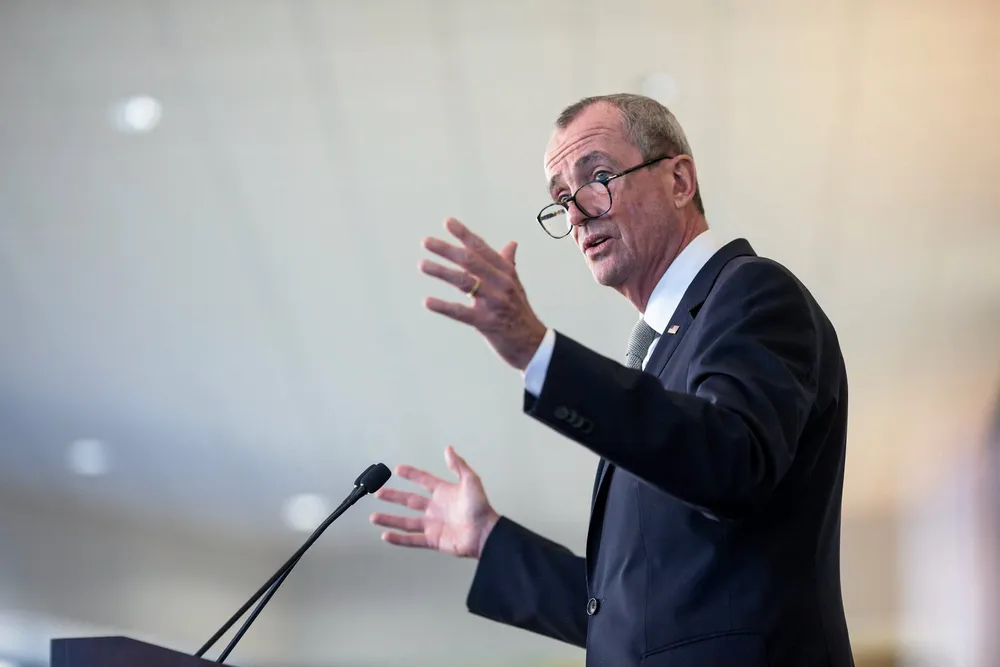New Jersey scraps offshore wind round over Shell and Trump
State says 4GW fourth round won't go ahead after Shell withdraws as equity partner in only project standing, and amid uncertainty over 'federal actions'

The US state of New Jersey’s uncertain future in offshore wind got even shakier with the announcement that it will not go forward with its Round 4 tender because the only remaining bidder, Atlantic Shores, lost joint venture partner the oil major Shell and because of uncertainty over “federal actions”.
The round for up to 4GW opened last summer and along with Atlantic Shores’ 1.3GW bid, attracted proposals from TotalEnergies with Corio, and RWE-National Grid, both of which pulled out last year.
Atlantic Shores, a joint venture of Shell and French energy firm EDF, already has a 1.5GW offtake contract with New Jersey in one of its three leases, with federal approval for another 1.3GW, which it bid into the procurement.
“A number of reasons led to this decision, notably Shell backing out as an equity partner in the Atlantic Shores project and backing away from the American clean energy market, as well as uncertainty driven by federal actions and permitting,” said Christine Guhl-Sadovy, president, New Jersey Board of Public Utilities (NJBPU).
NJBPU regulates the power sector including offshore wind for the state.
“The Board concluded that an award in New Jersey's fourth offshore wind solicitation, despite the manifold benefits the industry offers to the state, would not be a responsible decision at this time,” she added.
Atlantic Shores
Following Shell’s announcement, Atlantic Shores confirmed that it would continue to progress the array.
Joris Veldhoven, Atlantic Shores' CEO, said: “We’re discouraged to see the conclusion of this solicitation without an awarded project.
Federal coastal regulator Bureau of Ocean Energy Management (BOEM) has issued all its approvals clearing the project for offshore installation.
New Jersey Governor Phil Murphy has made offshore wind a cornerstone of his commitment to reaching 100% clean energy by 2035, with an 11GW goal by 2040.
“Today’s announcement clearly puts this goal at risk,” said Veldhoven.
The state's offshore wind ambitions were already tested by surging inflation over the past two years that drove up costs by 50% for the US sector, forcing Orsted to scrap its massive 2.25GW Ocean Wind 1 & 2 in 2023.
Atlantic Shores has faced persistent questions surrounding its offtake of $59/MWh, well below recent contract awards, and while it has declined to confirm, the project is widely seen to be seeking higher rates.
It also owns two leases directly off New Jersey and another in the New York Bight for which it paid $780m in 2022.
Trump uncertainty
The future of these leases and the contracted project have become less certain with Donald Trump's rise to the presidency.
Trump even targeted Atlantic Shores directly when he vowed to stop the industry “on day one” at a rally in coastal resort Wildwood last summer. Recently on Truth Social, Trump said he hoped the project was “dead and gone”.
The president made good on his threat and issued an executive order (EO) banning offshore wind leasing while putting existing projects under review and even threatening to settle litigation rather than defend government actions.
Trump’s EOs, while not stopping all activity, have seriously undermined market confidence in even permitted arrays.
“When it comes to investment in wind, whether in the US or elsewhere, we will focus on value maximisation in key markets where we have an advantaged position, and the macro context is naturally a key consideration,” he added.
Liz Burdock, CEO of industry group Oceantic Network, said NJBPU's decision is “not surprising given political headwinds and the uncertainty across the US economy driven by recent federal actions.”
“Our confidence remains in American offshore wind and its ability to deliver energy and economic security for our communities and our country,” she added.
Environmental groups came out in support of the industry.
“Now, more than ever, the commitment to clean energy must be maintained,” said a Sierra Club-backed alliance of environmental and business groups.
“It is critical for New Jersey to establish a pathway toward a clean energy future where offshore wind, solar, and other renewable sources remain at the forefront of our state’s energy strategy,” said the group that included the National Wildlife Federation, New Jersey Sustainable Business Council, and Anglers for Offshore Wind Power.
EDF has declined to comment on whether it was searching for a new partner for the project. Based on Equinor’s $5bn financial close of its 810MW Empire Wind to New York, Atlantic Shores will likely cost around $9bn.
“While the merits of each project must be evaluated based on the economic and energy needs of state and local interests, US offshore wind represents critical investment necessary to maintain our nation’s competitive energy advantage,” said Jason Grumet, CEO of renewables advocate American Clean Power Association (ACP).
“The US urgently needs more electricity, and offshore wind projects that have already gone through a comprehensive and rigorous permitting process are primed and ready to meet future energy demand,” he added.
Without Atlantic Shores, New Jersey likely won't see steel in the water until the 2030s, as the two projects under contract, TotalEnergies-Corio's 1.4GW Attentive Energy 2 and Invenergy-energyRE's 2.4GW Leading Light have only recently entered the federal permitting process which Trump just shut down.
Even without a Trump halt, an offshore wind array takes years to wend through federal regulator 's permitting regime.